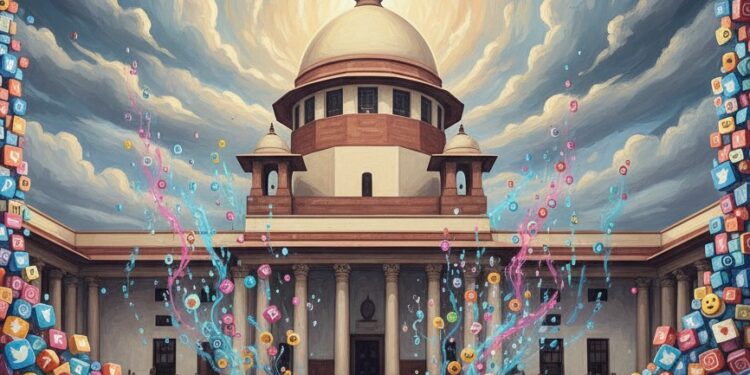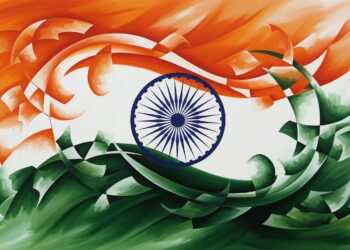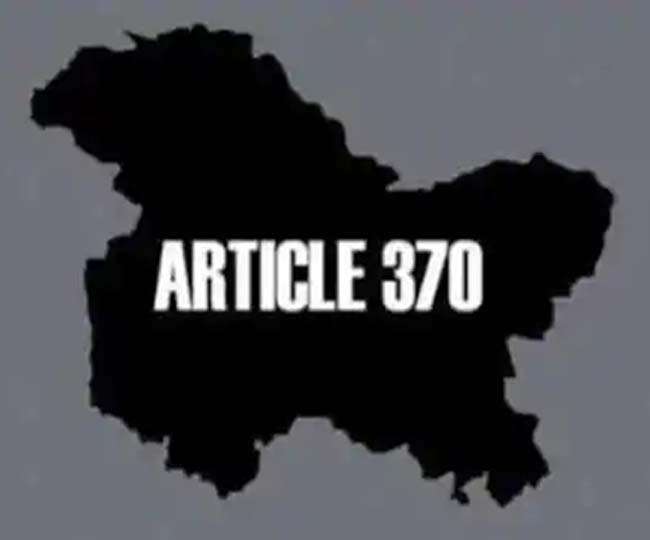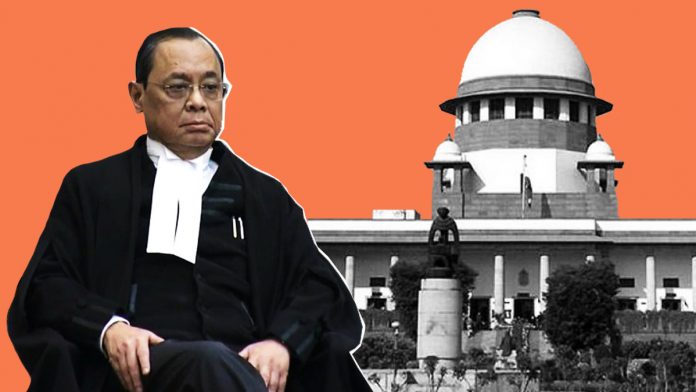On August 25, 2025, a Supreme Court Bench of Justices Surya Kant and Joymalya Babghi asked the Union government to frame guidelines regulating online speech, including social media posts and podcasts because, in its opinion, social media influencers use speech to mint money, and their comments can potentially hurt the sentiments of a range of vulnerable classes, including the disabled, women, senior citizens, children and minorities.
The apex court’s ire was directed particularly at the likes of Samay Raina and other bawdy jokers of his kind, who have, of late, been the talk of the town for cracking all kinds of distasteful and largely mirthless jokes. This time around, Samay Raina, together with a few others, were hauled to court for cracking insensitive jokes on people with disabilities, which was the particular context in which the Supreme Court felt the need for guidelines to regulate online commercial speech.
The apex court seems to have taken the position that social media influencers like Samay Raina have commercialized speech, and are regularly found engaged in distasteful, insensitive and hurtful speech. Such blatant abuse of the freedom of speech and expression, the Supreme Court felt, needed to be curbed. “When you are commercialising free speech, you should also bear in mind not to hurt the sentiments of certain sections of the society,” Justice Bagchi said.
There is absolutely no doubt that the likes of Samay Raina are basically the scum catering to the scum with their stinking gutter humour that’s not even funny. But people laugh because people do laugh even at a shockingly inappropriate joke when they hear it first more for the shock value of it than anything else. It’s not amusement; it’s just the shock manifesting as laughter at someone saying the unspeakable out aloud. And then, gradually and eventually the full import of it sinks in.
That’s when the little voice of conscience rudely wakes them to their own complicity in piling the garbage on, consciously or unconsciously. This is also when they start disliking such tapeworms as Samay Raina who managed to get their hooks into them to successfully drag them into the muck that they dwell in, joyously. This popular self-loathing inspires the effective backlash against the offensive jokes and offending jokers, shutting them up without the intervention of the State or the involvement of legal machinery.
The Hurt Sentiments Jurisprudence
The Supreme Court in its zeal to extend protection to people with disabilities has ignored the simple fact that the regulation of free speech does harm a great deal more than the ill it might or might not be able to remedy, not to mention ‘hurt sentiments’ are really no reason to regulate free speech because, strictly speaking, the Constitution protects the right to freedom of speech and expression and does not prescribe expressly or by necessary implication or by any stretch of imagination ‘reasonable restrictions’ on the grounds of ‘hurt sentiments’.
It is this unfortunate and dubious jurisprudence of ‘hurt sentiments’ that has concretized intangible ‘sentiments’ — real, imagined or pretended — into a cottage industry of outrage. Every other day we keep hearing about spoken or written words having ‘hurt’ somebody’s ‘sentiments’, and there is no end to it because the ‘sentiments’ are not characterized by anything except ‘sentiments’. There is no qualification. A politician is made fun of for the very political act of hopping parties and trying to create a breakaway party of his own, an act that is fundamentally frowned upon by the law in principle, being one of those acts in character, to curb which a legislation and a constitutional amendment were put in place.
The act made fun of might not be strictly legal because the law in this respect carves out reasonable exception in order to allow full play to political dissent within a party but that does not stop people from taking offense at the jokes framing the act of mockery as betrayal and the actor as ‘traitor’. Calling a politician a ‘traitor’ might be an exaggeration, of course. But that’s what jokes necessarily use to generate comedy. There is no joke without exaggeration. But the ‘sentiments’ were ‘hurt’ and the venue demolished for no act other than someone cracking a joke and the audience laughing at them.
Somebody calls a politician occupying a high political office a ‘scorpion’ on the Shivalingam, and a suit for defamation is brought against the person, and the High Court, no less, issues notice on it and allows a defamation suit to be prosecuted, completely ignoring the fact that the scorpion-on-shivalingam could only be a metaphorical expression, and not a statement of fact, which takes the law of defamation out of the picture for want of the necessary ingredient of ‘factual assertion’.
So, we are living in a country where political speech that ruffles the rich plumage of the high-flying political birds is not only frowned upon, but also becomes the subject matter of litigation with the court at the highest level of judicial hierarchy repeatedly failing to protect the constitutionally guaranteed freedom of speech and expression in the cases where it is not just a right but also a political duty for the citizens in a democracy to exercise. What happens to a democracy if the political acts of the politicians cannot be criticized and ridiculed without the fear of reprisal? It dies — that’s the answer.
Worst Case Scenario: Not Bad Enough
Supreme Court was sufficiently scandalized in the Samay Raina matter to ask the Union of India to frame guidelines for the exercise of right of speech and expression on social media, particularly by those who have commercialized speech, meaning those who earn money by speaking on social media. What might also be playing on the minds of Their Lordships is the highly objectionable jokes cracked by Ranveer Allahabadia of BeerBiceps, a popular YouTube channel, on a different online show called India’s Got Latent.
Allahabadia and Raina are part of the same bunch of jokers, along with several others, who routinely crack sexually offensive jokes loaded with choicest Hindi expletives that cannot be part of any civil speech. The jokes and supposedly ‘funny’ remarks by this bunch are, for the most part, in bad taste with some of them being downright disgusting. Some people laugh at them; most frown. They do not further the cause of any civil debate by any stretch of imagination, unlike political satire meant as a comment on political conduct of those who occupy high political offices.
However, the right response to distasteful jokes is to ignore them, and let them slide because they do not do any real harm to anybody. If you don’t like somebody’s jokes, just exercise discretion regarding the links you click and videos you play rather than ask the government to shut somebody up. People have the right to speak just as much as we have the right to listen as well as not listen. The right of the speakers in that context and those who want to, in fact, listen to the distasteful jokes cannot be curtailed because a lot of people do not want to listen to such speech.
The right of the many does not trump the constitutional right of the few because a constitutional right is not the same as a democratic choice of the collective. Nobody’s constitutional right can be curtailed even if everybody dislikes the exercise of such right as long as it doesn’t cause actual, tangible harm as opposed to notional harm or ‘hurt sentiments’.
And of all institutions, the primary guarantor, enforcer and guardian of Fundamental Rights under the constitutional scheme seems to have been swayed by taste rather than constitutionality. To be blunt, the Supreme Court is being overly sensitive about taste and the non-existent right to have one’s ‘sentiments’ protected rather than constitutional guarantees in asking the Union of India to intervene by framing enforceable guidelines in respect of the exercise of free speech on social media simply because a bunch of people are being disgusting on social media.
That’s like engaging a canon to kill a repulsive fly on the wall of a grand palace of political, cultural and historical importance. The fly would fly away in due time, or sooner, but the damage to the grand facade would be hard to mend, and there is no saying how long it would take.
Overdriven Executive
Even without encouragement, the Executive has been in a massive overdrive to roughshod over the constitutionally protected rights, having come at them with hammer and tongs at every available opportunity — and also without a real occasion or opportunity — in the last few years. From bulldozing houses of the accused and using central investigative agencies to arrest inconvenient political opponents in dubious cases to using Governors to exercise a sort of ‘pocket veto’ in respect of enactments duly passed by duly elected state legislatures and attempting to tinker the independence of the democratic institutions meant to keep a check on government excesses, the Union Executive has done everything to centralize power and exercise it despotically.
Frontal Attack on Free Speech
Filmmakers are no longer exploring subjects and themes that might not track with the ideologies of the powers that be. Journalists are facing criminal prosecutions for simply performing their duties as reporters of facts and political commentators.
In addition, the Union government has pushed the boundaries of its control of online speech with such dubious acts as framing of highly restrictive Information Technology (Intermediary Guidelines and Digital Media Ethics Code) Rules, 2021, having followed it up with an amendment to the Rules that make it possible for the social media platforms to face government action for such content posted by the users that the government flags for its own reasons, which can always be justified one way or the other. And taking recourse to the courts is time consuming and expensive, making the exercise of power by the government hard to challenge. Unfortunately, the courts, of late, have not been particularly vigilant, quick or effective in curtailing government excesses in respect of free speech. Or, for that matter, most government action aimed at pushing the constitutionally guaranteed mechanisms to the margins.
Federal Structure Attacked
The state governments in Tamil Nadu, Kerala, and Delhi (under former Chief Minister Arvind Kejriwal) have constantly battled Union government’s breach of federal boundaries by way of interference through the officials it controls, including such high constitutional offices as that of the Governors, to interfere with the legislative and executive functions by the democratically elected state governments. And even the intervention by the apex court on the side of the state governments has not dissuaded the Union government from persisting with its continual interference in the functioning of the governments in the states with a ruling party different from that at the centre. Also, let’s not forget that federalism is part of the Basic Structure of the Constitution, and taking liberties with it is akin to violating the very core of the Indian constitutionalism.
While the Courts have come to stand against unconstitutional government excesses, they have not been quick or thorough enough to make visible difference even though it’s still better than allowing a thoroughfare to the government. But that’s like having something rather than potentially nothing to thank for, which is more like a consolation than an effective redress. And that’s certainly not good enough when it comes to rights guaranteed by the supreme law of the land.
Judicial Compounding of the Problem
The Supreme Court order of August 25, 2025, effectively invites an already overdriven Executive to push its own despotic ambitions to further curtail free speech, which the Executive would likely be very pleased to do. While it can be theoretically argued that the ‘reasonable restrictions’ on the constitutional grounds of ‘decency and morality’ can be imposed for such speech acts as the likes of Allahabadia and Raina, along with many other social media influencers, regularly engage in, it is still better to not bring in regulatory big guns to do it, as argued earlier in this piece.
We can trust the society itself to get over it eventually. Besides, social media is not the same as mainstream electronic media, wherein the content can be beamed at unwilling consumers who have not consented to being bombarded with it through the screens. To consume social media content, one has to actively elect to do it. And anything unsavory can quickly be ignored, blocked and reported.
Even if the social media platform does not act on the report, the content from the channel or person would still be blocked for those who have opted out of watching it. So social media content is not exactly as big a problem as it is made out to be, and regulating online speech, for that reason, can only do more harm than good. It’s doing too much to achieve too little in terms of limiting precious constitutional rights.
The Supreme Court would do well to go back to being the protector of rights rather than the regulator of taste and decency in the online discourse. The constitutional grounds of ‘decency and morality’ are wide powers to be exercised both judiciously and sparingly with utmost caution to regulate free speech.
The society is perfectly capable of kicking to the curb and killing by inattention such exercise of free speech as it deems collectively unpalatable. For instance, there was a period during the 1980s when a number of Bollywood movies, beginning with Dada Kondke’s brand of films, featured double-meaning, risqué dialogues and also titles like ‘Andheri Raat Mein….’ that could only be considered indecent.
Such was the reception of sexual innuendos on silver screen at the time that Rajesh Khanna and Sridevi, the mega stars of the time, were seen exchanging dialogue that could only be characterized as sexually vulgar in Maqsad (1984). And there is no ‘speech’ more ‘commercial’ than dialogues delivered by actors as popular as Rajesh Khanna and Sridevi in a mainstream Bollywood film with a pan-India theatrical release.
However, soon enough, people were no longer amused by such dialogues and films, and the trend trailed off. So much so that hardly anybody remembers those films now. But at the time, there was much hue and cry about the falling standards of Hindi films and the vulgarity being commercialized. Eventually, people got bored of it all, and we moved on.
People like Allahabadia and Raina are way smaller than Bollywood stars, and social media does not have the kind of reach mainstream Bollywood films have. So the alarmist call for regulating free speech on social media because a few people talk and publish trash on it is a dangerous overreaction that could be hugely detrimental to the general exercise of a constitutionally guaranteed right.
Furthermore, it’s hard to see why the constitutional courts should intervene as long as the otherwise questionable speech does not interfere with the constitutional rights of someone else. Taste and decency are among the weakest grounds to regulate free speech.
Originally published as Cover Story in Lawyers Update, September 2025 Issue (Vol. XXXI, Part 9).





